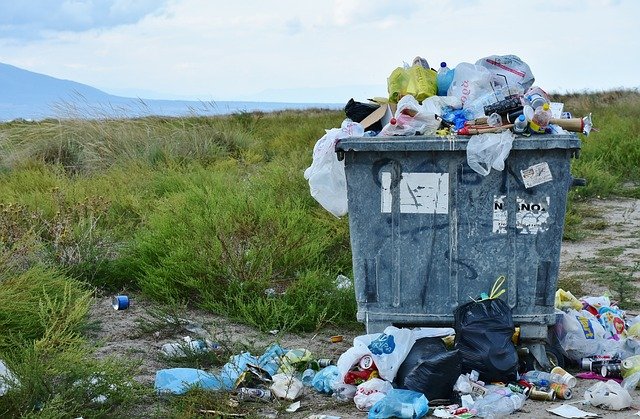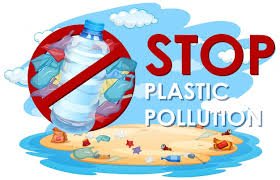Plastic Pollution: India is the country with the highest consumption of plastic in the world. As a result, the problem of plastic pollution has become very serious. A new research report published in Nature magazine has revealed that India contributes one-fifth of the world’s plastic pollution.
According to the report, India burns about 58 lakh tons of plastic every year. Apart from this, India also spreads 35 lakh tons of plastic waste on land, air and water every year. Overall, India contributes 93 lakh tons of plastic pollution worldwide every year. This is worrying because plastic pollution is very harmful for the environment.
Table of Contents
After India, Nigeria is at number two, which generates 3.5 million tons of plastic pollution every year. Indonesia is at number three, which generates 3.4 million tons of plastic pollution. China is at number four with 2.8 million tons of plastic pollution. Plastic pollution not only harms the environment, but it can also have serious effects on the human body. Small particles of plastic, called microplastics, are now being found in the human body as well.
Plastic pollution: Big difference between North and South
The impact of plastic waste on the environment depends on how it is managed. According to studies, about 251 million tons of plastic waste is generated in the world every year. When plastic waste is not managed properly, it causes pollution in the environment. Only 10% of the plastic waste in the world is recycled.
There is a huge difference between the countries of the North and South in terms of plastic pollution in the world. According to the study, about 69% of the total plastic pollution in the world (or 35.7 million tons every year) comes from only 20 countries. None of these countries are rich countries. According to the World Bank, countries included in the list of rich countries should have a per capita GDP of $13,846 or more.
Although these rich countries are all from the north, they produce more plastic waste than the countries from the south. Yet, none of these rich countries are among the 90 most plastic polluting countries in the world. This is because 100% of the waste in these countries is collected and disposed of properly.
Burning plastic is a big problem in poor countries
According to the study, burning plastic is the biggest cause of plastic pollution in the poor countries of the world. Except for some countries in the southern part of Africa, burning plastic waste is the biggest problem in these countries. Spreading of plastic waste is the biggest problem in rich countries. Both the situations show that the facilities of waste management are not good in these countries.
More than half of the plastic waste in Indonesia is burned. Only 5% of plastic waste is disposed of in the right place. Most of the plastic waste that ends up in the world’s oceans comes from the Philippines, India, Malaysia and Indonesia.
A lot of plastic waste is sent from rich countries to poor countries. This increases plastic pollution in poor countries. China banned the import of plastic waste in 2018. This led to plastic waste being sent to other countries. The European Union is also considering banning the sending of plastic waste to other countries. This will put the responsibility on countries to manage their own waste within their own country.

The reason for most plastic pollution in India
The reason for most plastic pollution in India is that due to India’s increasing population and urbanization, plastic consumption is constantly increasing. People are now using more and more plastic products, due to which the amount of plastic waste is also increasing. The system of waste management in India is not very good. Most of the garbage is thrown in the open or dumped at uncontrolled dumping sites. This spreads plastic waste in the environment.
The Indian government claims that more than 95% of the waste in the country is collected, but in reality the figure is only around 81%. This means that a lot of waste is still not being collected and is spreading in the environment. Millions of tons of plastic are burned every year. This pollutes the air and water and poses a threat to health.
Apart from this, a lot of plastic waste is recycled informally. In this process, harmful chemicals are often used, which harms the environment. Excessive use of single-use plastics like bags, bottles, cups, etc. is also a major cause of plastic pollution.
Why is it important to manage plastic waste properly?
Plastic waste clogs rivers and drains, which creates the danger of floods. Plastic waste also reaches the sea, which harms marine life. Burning plastic releases toxic substances into the air. Small pieces of plastic get mixed in water and food, which can cause health problems in the long run.
Plastic waste also becomes a breeding ground for disease-carrying organisms, increasing the risk of diseases like dengue and malaria.

Laws related to plastic waste management in India
The Indian government has made many rules and laws to reduce plastic pollution. The purpose of these rules is to improve the management of plastic waste.
Plastic Waste Management Rules 2016 : According to this rule, every local body will have to make arrangements for segregating, collecting, processing and disposal of plastic waste.
Plastic Waste Management (Amendment) Rules 2018 : According to this rule, certain types of plastic bags have been banned. These are bags that cannot be recycled or have no other use. The law says that companies have to manage the waste of their products themselves. The Central Pollution Control Board (CPCB) has created a registered system for companies.
Plastic Waste Management (Amendment) Rules 2021 : According to this rule, some single-use plastic products have been banned. These products are not very useful and spread more waste. Apart from this, the thickness of plastic bags has been increased. By September 2021, it was increased from 50 microns to 75 microns. By December 2022, it was increased to 120 microns.
Apart from these laws, the Government of India and many non-governmental organizations are also taking initiatives to reduce plastic pollution. Swachh Bharat Mission is a big campaign to make India clean. India Plastic Pact is a voluntary agreement in which companies, government and non-governmental organizations work together to reduce plastic pollution. Project REPLAN is a project aimed at reducing plastic waste and recycling plastic. Go Litter Partnership Project is a project aimed at changing the habit of throwing garbage and motivating people to separate garbage.
Who is responsible, the government or the public?
The government has made many rules to reduce plastic pollution, but these are not being implemented properly. Many times the rules are violated and no fine is imposed or the fine is very low. Secondly, plastic is produced illegally at many places, against which no action is taken.
No one can be held responsible for plastic pollution in India. Both the government and the public will have to work together. The government will have to make more effective policies and it is also necessary to follow them strictly. At the same time, the public will also have to understand their responsibility and use plastic as little as possible and dispose of plastic waste properly.
Also Read:

